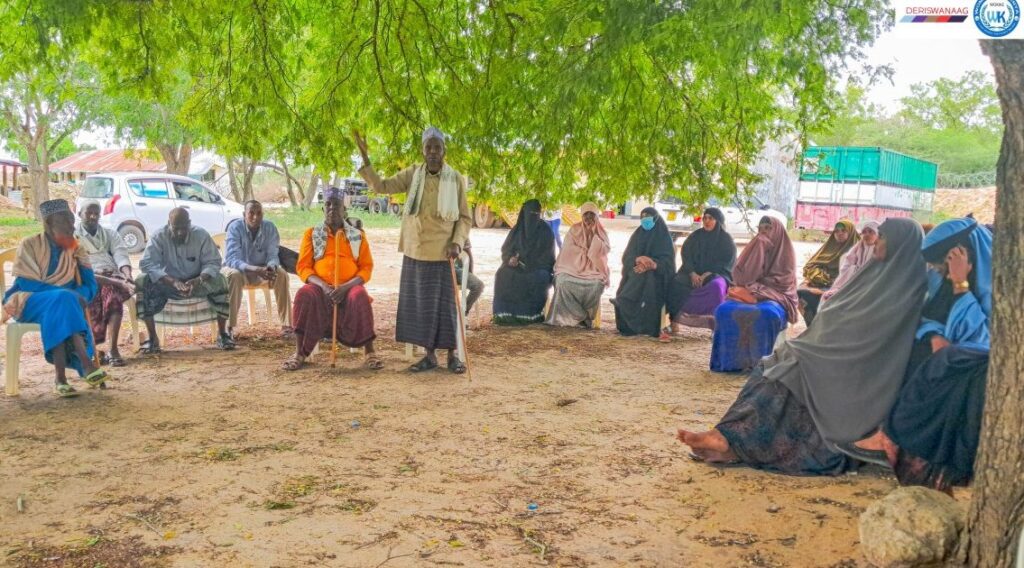ADF STAFF
No one knows the dangerous, porous borderlands of Kenya and Somalia like its residents, and in the face of increasing terrorist attacks and recruitment, members of the community are coming together to protect themselves.
A new initiative launched by Womankind Kenya, a Garissa-based nongovernmental organization (NGO) that focuses on women and children, aims to bolster stability on both sides of the border. Its goal is to bring communities together to communicate, collaborate and enhance their ability to resolve conflicts peacefully.
In a social media post on May 29, Womankind Kenya Director Abdullahi Mohamed announced the launch of the Sustainable Cross Border Peace, Security and Conflict Transformation Project, and said it is being implemented for a year.
“The project employs strategies to strengthen the resilience and capacities of cross-border community members, government and non-state actors to prevent and mitigate violent extremism and conflicts,” Womankind Kenya posted on its website.
“Recognizing the unique role of women, youths and other vulnerable groups as agents of change in peace-building and conflict transformation, the project undertakes a gender mainstreamed approach in delivery of interventions.”
Kenya’s Garissa County, on the border with Somalia, has suffered some of the worst attacks by the terrorist group al-Shabaab. The county shares a frontier that is hundreds of kilometers long and has hundreds of dusty roads into Somalia, but there are few formal border crossings.
According to the Armed Conflict Location & Event Data Project (ACLED), an NGO that maps and analyzes violent global crises, recent military gains in Somalia have resulted in more al-Shabaab attacks in Kenya.
Counterterrorism operations involving the African Union Transition Mission in Somalia (ATMIS) and the Somali National Army “have intensified in preparation for the end of the ATMIS mandate in December 2024.”
“These operations may have driven al-Shabaab operatives into Kenya,” ACLED wrote in a situation report earlier this year. “Changes in the leadership of Kenya’s state intelligence agencies in April and May [2023] are also thought to have negatively affected those agencies’ counterterrorism work mid-year.”
As terrorism has spread across Africa, experts have called for increasing stakeholder engagement to complement and enhance the more militaristic approach many countries have employed.
Womankind Kenya’s plan is to involve cross-border communities in addressing root causes that enable the spread of extremist rhetoric and terrorist recruitment.
The project will enhance conflict resolution between cross-border communities in the Kenyan border towns of Hulugho, Bodhai and Kolbio, Mohamed told Kenya News Agency on the sidelines of a three-day workshop in Hulugho, just steps away from the Somali border.
The project is designed to benefit vulnerable groups, including persons with disabilities, key community influencers and religious leaders.
“[Mohamed] said that implementation strategies to be utilized include establishing and strengthening of local structures, engagement forums, stakeholder engagement, awareness creation at the community levels, inter-gender and generational dialogues, support for youth peace groups among others,” KNA reported on May 29.
On the project web page, Womankind Kenya detailed how improving cross-border cooperation and border community engagement is crucial to mitigating the risks of cross-border attacks.
“Both sides of the border have community peace structures. However, these conflicts are complex, dynamic and ever-changing,” it said. “The border peace building structures may at times not have the relevant capacities and know-how to address them before it escalates.
“The project endeavors to strengthen cooperation to allow the neighboring cross-borders communities to collaborate, coordinate and address the issues that affect them together.”

